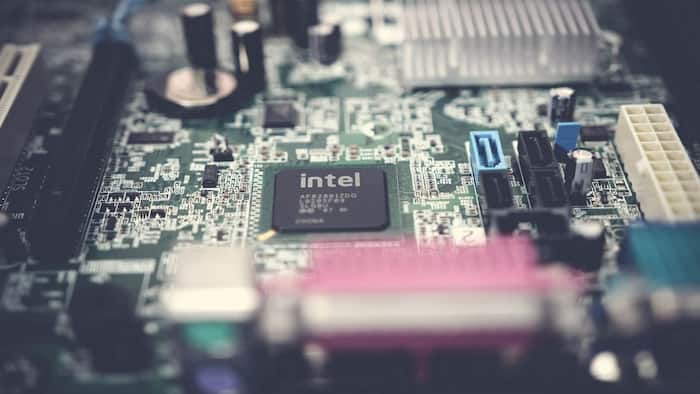
Written By Shweta Ganjoo
Published By: Shweta Ganjoo | Published: Aug 14, 2023, 05:03 PM (IST)


The Indian government has issued a warning informing users about a major vulnerability in Intel processors. According to details shared by the government’s cyber security agency, the Indian Computer Emergency Response Team or CERT-In, the vulnerability could lead an attacker to obtain sensitive information pertaining to the targeted system. Also Read: Govt Seeks Clarification From Apple As ‘Mercenary’ Spyware Threat Alerts Reach Users In India
The cyber security agency, in its latest post, said that the vulnerability is known as Gather Data Sampling or GDS and it can be exploited by attackers to obtain sensitive information on the targeted system that is powered by an Intel chipset. Furthermore, the agency says that this vulnerability exists in Intel processors due to the microarchitectural state after transient executive in certain vector executive units. Also Read: Windows 10 And Windows 11 Hit By High-Severity Security Flaw: CERT-In Issues Warning
“An attacker could exploit this vulnerability by sending a specially crafted request,” Cert-In wrote in a blog post. Also Read: Microsoft Users At High Risk: Indian Govt Recommends Updating Your Devices Now
Should you be concerned? Yes. Cert-In says that the successful exploitation of this vulnerability could lead an attacker to obtain sensitive information about the targeted system. This includes sensitive information such as passwords, encryption keys and other high-value data.
If you are not sure if your PC is affected by this bug, here is a detailed list for your reference:
Intel Xeon E processor family
Intel Xeon D processor family
Intel Xeon W processor family
Intel Core X-Series Processors
Intel Xeon Scalable processor family
2nd Generation Intel Xeon Scalable processor family
3rd Generation Intel Xeon Scalable processor family
Intel Pentium Processor J Series
Intel Pentium Processor N Series
Intel Celeron Processor J Series
Intel Celeron Processor N Series
Intel Atom Processor A Series
Intel Atom Processor E3900 Series
Intel Atom C processor family
3rd Gen Intel Xeon Scalable processor family
Intel Pentium Processor Silver Series
Intel Celeron Processor J Series
Intel Celeron Processor N Series
Intel Celeron Processor J Series
Intel Celeron Processor N Series
10th Generation Intel Core Processor Family
Intel Atom Processors
Intel Atom Processor P5900
Intel Atom Processor C5000
Intel Atom Processor P5300
Intel Atom Processor P5700
Intel Core Processors with Intel Hybrid Technology
11th Generation Intel Core Processor Family
Intel Xeon Processor Family
8th Generation Intel Core Processor Family
7th Generation Intel Core Processor Family
8th Generation Intel Core Processor Family
10th Generation Intel Core Processor Family
Intel Pentium Gold Processor Series
Intel Celeron Processor 5000 Series
10th Generation Intel Core Processor Family
12th Generation Intel Core Processor Family
12th Generation Intel Core Processor Family
Intel Pentium Gold Processor Family
Intel Celeron Processor Family
12th Generation Intel Core Processor Family
12th Generation Intel Core Processor Family
7th Generation Intel Core Processor Family
7th Generation Intel Core Processor Family
8th Generation Intel Core Processor Family
Intel Pentium Processor Family
Intel Core X-series Processors
8th Generation Intel Core Processor Family
Intel Pentium Gold Processor Series
Intel Celeron Processor G Series
9th Generation Intel Core Processor Family
9th Generation Intel Core Processor Family
10th Generation Intel Core Processor Family
Intel Xeon W processor family
10th Generation Intel Core Processor Family
Intel Pentium Gold Processor Family
Intel Celeron Processor Family
Intel Xeon W processor family
10th Generation Intel Core Processor Family
11th Generation Intel Core Processor Family
Intel Xeon E-2300 Processor Family
Intel Xeon W-1300 processor family
Intel Processor U-series
4th Generation Intel Xeon Platinum Processors
4th Generation Intel Xeon Gold Processors
4th Generation Intel Xeon Scalable processors
4th Generation Intel Xeon Platinum processors
4th Generation Intel Xeon Gold Processors
4th Generation Intel Xeon Silver Processor
4th Generation Intel Xeon Bronze Processor
Intel Xeon CPU Max Series processors
4th Gen Intel Xeon Scalable Processors with Intel vRAN
Intel Xeon W processor family
The only way you can safeguard yourself from this vulnerability is by installing the latest version of firmware on your PC. “Intel recommends that users of affected Intel Processors update to the latest version firmware provided by the system manufacturer that addresses these issues,” the company wrote in a support page.